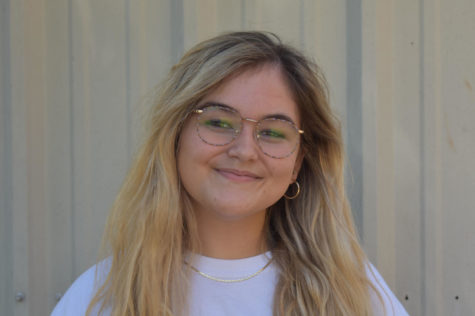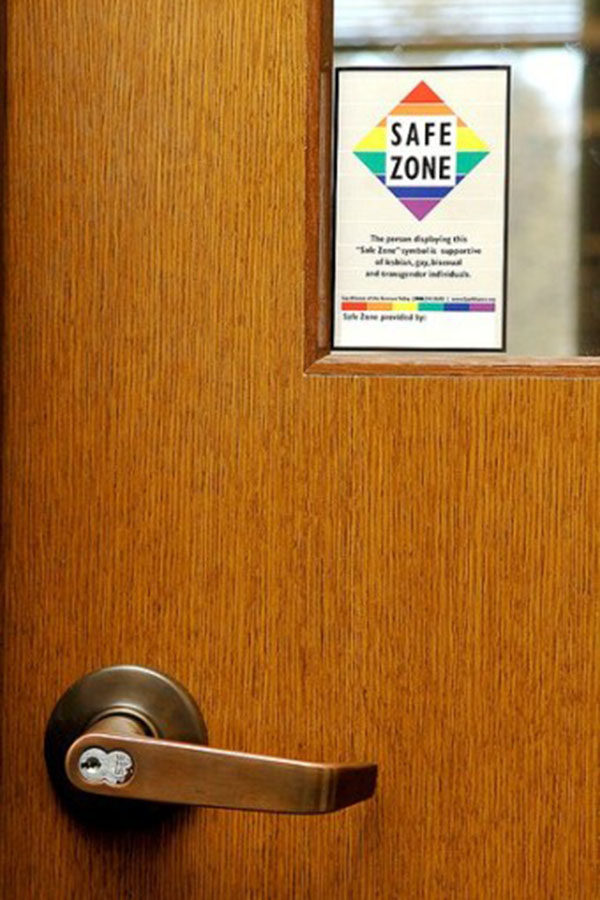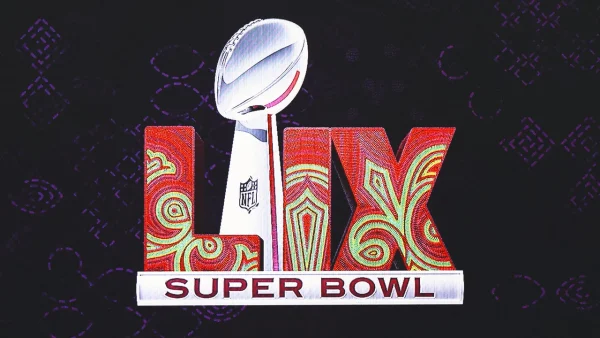Safe Spaces Provide Shelter for Minorities
In today’s political climate, being a minority is challenging and scary. While some people are kind and accepting, others can be harsh and cruel. There has been a recent spike in hate crimes: in 2013 alone there were 5,928 reported hate crimes (fbi.gov). Of these, the top three bias categories were race (48.5 percent), sexual orientation (20.8 percent), and religion (17.4 percent) (fbi.gov).
Because of these increasing crimes, safe spaces have become increasingly available, especially at college campuses. A safe space is a place where a group of people can feel confident that they will not be exposed to criticism, harassment, or any other kind of emotional/physical harm due to their race, religion, or sexual orientation.
At Central, there aren’t any official safe spaces, but there are clubs that provide similar support for minorities. These clubs include the Gay/Straight alliance and the NAACP which are made for students to come together and discuss prevalent issues and be comfortable in who they are.
Safe spaces are mainly present on college campuses. They can be planned by students, faculty, or different organizations on campus. These spaces are prevalent for students who feel marginalized and discriminated against, and they help them adapt to campus life and know what places are accommodating.
Safe spaces have a major impact.They give people the opportunity to be completely themselves and talk freely without having to worry about any backlash. While safe spaces can be beneficial, they can also be troublesome. Safe spaces that are publicized be targeted by hate groups and organizations that aim to tear down people of different religions, races, or sexual orientations. Some argue that safe spaces are also an infringement on the First Amendment. Since they limit speech to make sure no one feels uncomfortable or targeted, some see them as unconstitutional, and they even petition to remove these safe spaces.
Safe spaces are a heavily debated topic and; while they can be seen as helpful, they can also be problematic. With the rise in hate crimes, people need a place to be safe and feel comfortable and not discriminated against. Safe spaces are helpful to those who need a place to connect with others who share in their experience, especially in college, which is a big step in anyone’s life. Being away from home, feeling the pressure to succeed and make new friends, and not knowing the town you are in can be frustrating and difficult, especially for minorities. These safe spaces are necessary for people of any age, race, religion, or sexual orientation to feel safe and not targeted against. I believe that safe spaces are crucial to making an individual feel like they aren’t alone in the discrimination and hate they are experiencing. It builds a healthy community, and everyone deserves the right to have that.
In today’s political climate, being a minority is challenging and scary. While some people are kind and accepting, others can be harsh and cruel. There has been a recent spike in hate crimes: in 2013 alone there were 5,928 reported hate crimes (fbi.gov). Of these, the top three bias categories were race (48.5 percent), sexual orientation (20.8 percent), and religion (17.4 percent) (fbi.gov).
Because of these increasing crimes, safe spaces have become increasingly available, especially at college campuses. A safe space is a place where a group of people can feel confident that they will not be exposed to criticism, harassment, or any other kind of emotional/physical harm due to their race, religion, or sexual orientation.
At Central, there aren’t any official safe spaces, but there are clubs that provide similar support for minorities. These clubs include the Gay/Straight alliance and the NAACP which are made for students to come together and discuss prevalent issues and be comfortable in who they are.
Safe spaces are mainly present on college campuses. They can be planned by students, faculty, or different organizations on campus. These spaces are prevalent for students who feel marginalized and discriminated against, and they help them adapt to campus life and know what places are accommodating.
Safe spaces have a major impact.They give people the opportunity to be completely themselves and talk freely without having to worry about any backlash. While safe spaces can be beneficial, they can also be troublesome. Safe spaces that are publicized be targeted by hate groups and organizations that aim to tear down people of different religions, races, or sexual orientations. Some argue that safe spaces are also an infringement on the First Amendment. Since they limit speech to make sure no one feels uncomfortable or targeted, some see them as unconstitutional, and they even petition to remove these safe spaces.
Safe spaces are a heavily debated topic and; while they can be seen as helpful, they can also be problematic. With the rise in hate crimes, people need a place to be safe and feel comfortable and not discriminated against. Safe spaces are helpful to those who need a place to connect with others who share in their experience, especially in college, which is a big step in anyone’s life. Being away from home, feeling the pressure to succeed and make new friends, and not knowing the town you are in can be frustrating and difficult, especially for minorities. These safe spaces are necessary for people of any age, race, religion, or sexual orientation to feel safe and not targeted against. I believe that safe spaces are crucial to making an individual feel like they aren’t alone in the discrimination and hate they are experiencing. It builds a healthy community, and everyone deserves the right to have that.








John Logan Darr • Jan 18, 2019 at 12:16 pm
Safe spaces create a society of victims. Those who often feel “discriminated” against are commonly misconcepted into believing that they are oppressed and discriminated against my any cisgender, straight, white, male. Maybe instead of hiding people from whatever issues they think they are facing maybe we should teach them how to counteract certain arguments and be proud of who they are against anyone who thinks otherwise. It’s safer to be ready for opposition than to run from it because if your taught to run away you’ll be running your whole life
Hallie • Jan 10, 2019 at 2:48 pm
Safe space is an amazing thing. It is gray when people can feel comfortable in their own skin and feel safe in our school and other places.